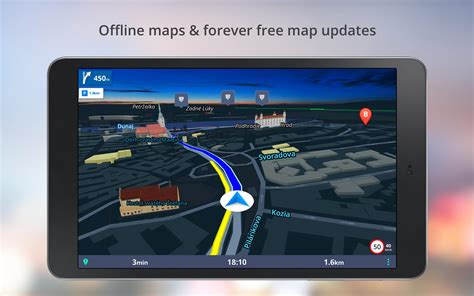Can Felons Drive

The ability of felons to drive is a complex issue that varies greatly depending on the jurisdiction and the specific circumstances of their conviction. In many cases, a felony conviction can indeed impact an individual's driving privileges, leading to various restrictions or even the loss of their driver's license. This article aims to delve into the intricate world of felon driving rights, exploring the legal landscape, the potential consequences, and the avenues for rehabilitation and license restoration.
Understanding Felony Convictions and Driving Privileges

A felony conviction is a serious criminal offense, typically punishable by imprisonment for more than one year or by death. Felonies encompass a wide range of crimes, including violent offenses, drug-related crimes, white-collar crimes, and certain non-violent offenses with severe penalties. When an individual is convicted of a felony, the repercussions can extend far beyond the criminal justice system, often affecting their daily lives and future opportunities.
One area where felony convictions can have a significant impact is on an individual's driving privileges. In many jurisdictions, certain felony convictions can result in the automatic suspension or revocation of a driver's license. This is particularly true for offenses that directly relate to driving, such as:
- DUI/DWI (Driving Under the Influence/Driving While Intoxicated)
- Vehicular Homicide
- Hit-and-Run Incidents
- Driving with a Suspended License
- Felony Reckless Driving
- Certain Drug-Related Offenses
However, it's important to note that the specific laws and regulations regarding driving privileges for felons can vary greatly from one state or country to another. While some jurisdictions may have strict policies that automatically revoke driving privileges for certain felony convictions, others may offer more flexibility and opportunities for restoration.
Automatic License Suspension or Revocation
In many cases, certain felony convictions can trigger an automatic suspension or revocation of an individual’s driver’s license. This means that the individual’s license is either temporarily or permanently taken away, depending on the jurisdiction and the nature of the offense. The suspension or revocation period can vary, ranging from a few months to several years, or even indefinitely.
For example, in the United States, many states have implemented a "per se" revocation policy for DUI/DWI offenses. This means that if an individual is convicted of a DUI/DWI, their license is automatically revoked for a specified period, often accompanied by mandatory rehabilitation programs or ignition interlock device requirements.
| State | DUI/DWI Revocation Period |
|---|---|
| California | 4 months to 10 years |
| New York | 6 months to 1 year |
| Texas | 90 days to 2 years |

Offenses Leading to License Suspension
Aside from DUI/DWI offenses, there are several other felony convictions that can result in the suspension or revocation of a driver’s license. These include:
- Vehicular Homicide: If an individual is convicted of causing the death of another person while driving, their license may be suspended or revoked.
- Hit-and-Run: Fleeing the scene of an accident can lead to license suspension, especially if there are injuries or fatalities involved.
- Driving with a Suspended License: This offense can result in further license suspension or revocation, creating a cycle that makes it challenging for individuals to regain their driving privileges.
- Felony Reckless Driving: Engaging in reckless behavior while driving, such as street racing or endangering others, can lead to felony charges and subsequent license suspension.
- Drug-Related Offenses: Certain drug-related convictions, especially those involving the sale or distribution of controlled substances, can result in license suspension or revocation.
The Impact of License Suspension or Revocation

The suspension or revocation of a driver’s license can have far-reaching consequences for felons, affecting their daily lives, employment opportunities, and overall quality of life. Here are some key impacts:
Limited Mobility and Independence
For many individuals, driving is an essential aspect of daily life. It enables them to commute to work, run errands, visit friends and family, and access essential services. When a felon’s license is suspended or revoked, their mobility is significantly restricted, leading to increased reliance on public transportation, carpooling, or other alternative means of travel.
In rural or suburban areas where public transportation is limited, the loss of driving privileges can be particularly challenging. It may lead to social isolation, difficulty accessing healthcare or educational opportunities, and increased financial strain due to the cost of alternative transportation options.
Employment and Economic Opportunities
A driver’s license is often a crucial requirement for many jobs, especially in industries that rely heavily on transportation, such as logistics, delivery services, and certain construction roles. When a felon’s license is suspended or revoked, their employment opportunities can be severely limited, leading to financial instability and difficulty in finding sustainable employment.
Additionally, many individuals with felony convictions already face challenges in the job market due to the stigma associated with their criminal record. The loss of driving privileges can further exacerbate these difficulties, making it even harder for them to secure stable employment and rebuild their lives.
Community Reintegration and Rehabilitation
Driving privileges play a significant role in an individual’s ability to reintegrate into their community and participate in rehabilitation programs. When a felon’s license is suspended or revoked, their access to essential services, support groups, and counseling programs may be hindered. This can impede their progress in rehabilitation and increase the risk of recidivism.
Furthermore, the inability to drive can create barriers to accessing educational opportunities, vocational training, and other resources that are crucial for successful reentry into society. It may also limit their ability to participate in community activities, volunteer work, or other initiatives that promote positive change and personal growth.
Paths to License Restoration
While the suspension or revocation of a driver’s license can be a significant challenge for felons, there are often avenues for restoration and regaining driving privileges. The specific requirements and processes for license restoration can vary greatly depending on the jurisdiction and the nature of the offense. Here are some common paths to license restoration:
Completion of Court-Ordered Programs
In many cases, courts may require felons to complete specific programs or courses as a condition for license restoration. These programs are designed to address the underlying issues that led to the offense and promote positive behavioral change. Common programs include:
- Substance Abuse Treatment: For offenses related to driving under the influence, completion of a substance abuse treatment program may be mandatory. This can include inpatient or outpatient rehabilitation, counseling, and ongoing support to maintain sobriety.
- Ignition Interlock Devices: For DUI/DWI offenses, the installation and use of an ignition interlock device may be required. These devices prevent the vehicle from starting if alcohol is detected on the driver's breath, providing an additional layer of safety and accountability.
- Driver Improvement Courses: Depending on the offense, felons may be required to complete driver improvement courses that focus on safe driving practices, defensive driving techniques, and traffic law education.
Compliance with Court Orders and Probation
In order to be eligible for license restoration, felons must typically demonstrate compliance with all court orders and probation requirements. This includes attending mandatory court hearings, paying fines and restitution, and adhering to any other conditions set by the court or probation officer.
Failure to comply with court orders can result in extended license suspension or revocation periods, making it even more challenging to regain driving privileges. It is crucial for felons to maintain open communication with their probation officer and seek guidance on any uncertainties or challenges they may face during the restoration process.
Successful Completion of a Restoration Process
Most jurisdictions have a defined process for felons to follow in order to restore their driving privileges. This process typically involves several steps, including:
- Petitioning for Restoration: Felons must file a petition with the appropriate government agency, such as the Department of Motor Vehicles (DMV), requesting the restoration of their driving privileges.
- Documentation and Proof of Compliance: Along with the petition, felons must provide documentation and proof of compliance with court-ordered programs, completion of required courses, and any other relevant requirements.
- Waiting Period: Depending on the jurisdiction and the nature of the offense, there may be a mandatory waiting period before the restoration process can begin. This waiting period allows time for the felon to demonstrate a commitment to rehabilitation and responsible behavior.
- Re-Evaluation and Hearing: The government agency responsible for driver's license restoration will typically review the felon's petition and supporting documentation. If the requirements are met, a hearing may be scheduled to assess the felon's eligibility and suitability for license restoration.
- License Restoration: If the felon successfully completes all the required steps and demonstrates their commitment to responsible driving, their driving privileges may be restored. This often involves paying a restoration fee and undergoing a new driver's license application process.
Conclusion
The ability of felons to drive is a complex issue that varies depending on the jurisdiction and the specific circumstances of their conviction. While certain felony convictions can result in the suspension or revocation of a driver’s license, there are often paths to license restoration and regaining driving privileges. Understanding the legal landscape, the potential consequences, and the avenues for rehabilitation is crucial for felons navigating this challenging process.
By complying with court orders, completing required programs, and demonstrating a commitment to responsible driving, felons can work towards restoring their driving privileges and reintegrating into their communities. It is essential for felons to seek guidance and support throughout this process, ensuring they understand their rights and responsibilities and have the necessary resources to navigate the complexities of license restoration.
Frequently Asked Questions

Can a felony conviction always result in the loss of driving privileges?
+No, not all felony convictions automatically lead to the loss of driving privileges. While certain offenses, such as DUI/DWI or vehicular homicide, often result in license suspension or revocation, the impact can vary depending on the jurisdiction and the specific circumstances of the conviction.
Are there any exceptions to the automatic license suspension or revocation policies for felons?
+Yes, some jurisdictions may offer exceptions or alternative options for felons facing license suspension or revocation. These exceptions may be based on the nature of the offense, the individual’s driving record, or their participation in specific rehabilitation programs. It’s important to consult with legal professionals or government agencies to understand the specific policies in your jurisdiction.
How long does a license suspension or revocation typically last for felons?
+The duration of license suspension or revocation for felons can vary widely depending on the jurisdiction and the nature of the offense. It can range from a few months to several years, or even indefinitely. In some cases, the suspension or revocation period may be accompanied by mandatory rehabilitation programs or other requirements before driving privileges can be restored.
Can felons drive during their suspension or revocation period?
+No, felons are typically prohibited from driving during their suspension or revocation period. Driving while suspended or revoked can result in additional legal consequences, including further license suspension, fines, and even criminal charges. It is important for felons to adhere to the terms of their suspension or revocation and explore alternative transportation options during this period.
What steps should felons take to restore their driving privileges?
+To restore their driving privileges, felons should follow the defined process in their jurisdiction. This typically involves completing court-ordered programs or courses, demonstrating compliance with court orders and probation requirements, and successfully completing a restoration process that may include petitioning, providing documentation, and attending hearings. It’s crucial to seek guidance and support throughout this process to ensure a smooth and successful restoration.



